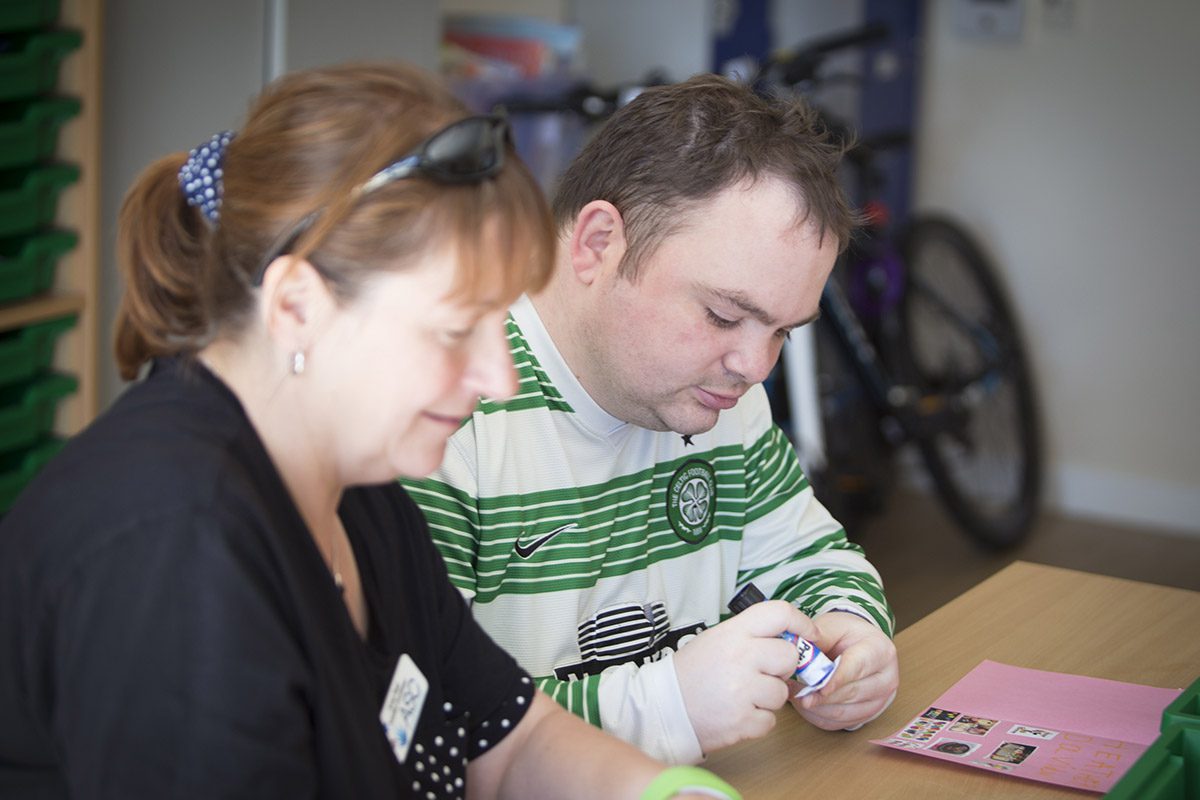What is ‘Challenging Behaviour’ anyway?
People mix it up with an actual diagnosis, but challenging behaviour can be a symptom of many things, explains Fabian Haut, Consultant Psychiatrist to ASC.
Not a medical diagnosis, challenging behaviour is rather a symptom that may belie a variety of underlying causes. Physical or psychiatric illnesses are a common culprit. Others include some type of distress or environmental influences. Challenging behaviour may even be an attempt to communicate.
Challenging behaviour is typically used to describe individuals who have a reduced capability to interpret their own actions, which can include children, people with dementia and brain injuries, among others.
Dealing with challenging behaviour oftentimes isn’t easy. But the challenges may be especially acute for individuals characterized as having a learning disability. By this, we typically mean individuals who have a reduced intellectual ability and difficulty with completing everyday tasks. Examples might include an inability to take a bus independently, manage their own shopping, attend a GP appointment, or to avoid being taken advantage of in social situations.
For individuals with learning disabilities, challenging behaviour may take the form of not just ‘acting out’, but also self-injury or aggressive behaviour. Of course that is distressing not just for the individual, but also their family, carers or neighbours, and requires immediate action to keep the individual and others safe.
If someone’s challenging behaviour is severe, however, it can be a barrier to their receiving successful care in their own community, leading to repeated hospitalisations and placements in specialist, out-of-area facilities.
Medication remains an essential tool. Especially for patients with a learning disability, anxiety-reducing medication – or in the longer term, antipsychotic medication – may be a boon for eliminating distress.
But medications are not a permanent cure for challenging behaviour, and of course can have very significant, unwanted side effects.
Unfortunately, for handling challenging behaviour, historically there has been a propensity to overprescribe medication. In 2016 that led to NHS England, backed by the Royal College of Psychiatrists and many others, to launch the STOMP campaign. STOMP stands for ‘stopping over-medication for people with learning disability’.
As STOMP emphasises, cautious, judicious and mindful use of medication – subject to appropriate scrutiny – remains an essential clinical tool.
But the best approaches prioritise putting in place appropriate living environments, the right type of specialised care and support, as well as appropriate communication strategies. This person-centred, behavioural approach is often backed by a ‘Positive Behaviour Support’ plan, typically developed by a psychologist trained in these techniques. It boils down to trying to change behaviour by first assessing and trying to understand the meaning of the challenging behaviour.
Next, such programs aim – in a proactive and preventative way – to teach patients new skills and behavioural responses which can replace their old, challenging behaviour patterns.
Finding better solutions has public health upsides. The Scottish Government, in its 2018 ‘Coming Home’ report, found that challenging behaviour was a factor in two-thirds of individuals with a learning disability having been placed in out-of-area care, away from their families.
For people with learning disabilities, finding long-term solutions to challenging behaviour so often boils down, at least in part, to ensuring that they have suitable living accommodation and care, as well as meaningful daytime activities. While that might sound basic, time and again, providing individuals who have a learning disability into highly structured and engaging environments serves as the basis for reducing or eliminating so-called challenging behaviours. As a knock-on effect, these strategies also help reduce the need for unnecessary medication or individuals being placed away from their families and communities.
There has not been an official adoption of STOMP north of the border, and it’s something I think is crucial for the learning disability sector in Scotland to progress.
As a specialist provider for people with learning disabilities and challenging behaviour, ASC and Balhousie Care recognises the importance of non-pharmacological approaches. We not only work with local services to develop appropriate Positive Behaviour Support plans, but have dedicated teams to continue to improve the care and lives of people who have a learning disability.


